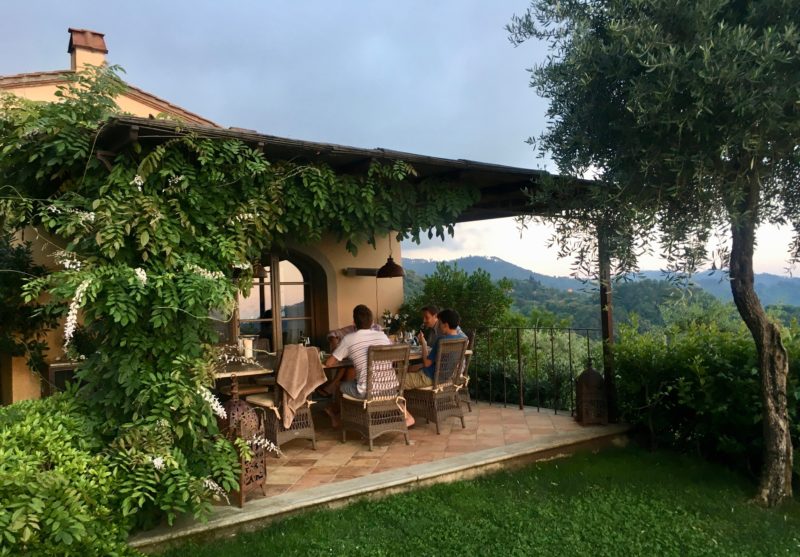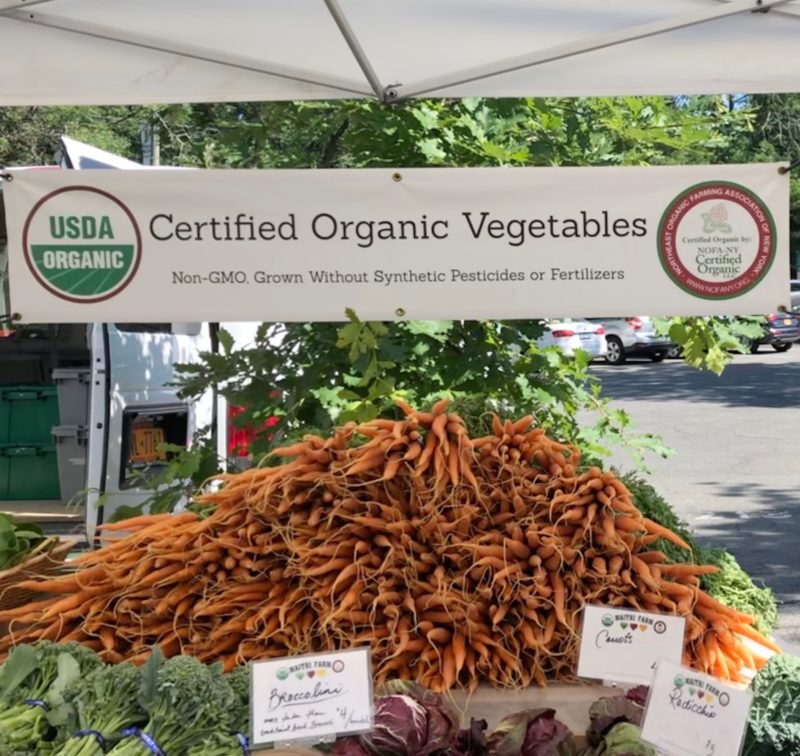I love summer entertaining. I try to make it a convenient, (almost!) effortless, event where I can relax with friends and family. Unfortunately, the ease and convenience of summer entertaining often means a reliance on single-use disposables and prepared, pre-packaged foods.
Over the years I’ve made a conscious effort to change my party-planning routine and make it more eco friendly. It has been a process of trial and error, and I’m still learning, but I hope these “green” summer entertaining tips will be helpful for you too!
Table of Contents
Green Invitations

For most gatherings, a simple email should suffice, but if you’re planning a special occasion your guests will appreciate receiving a pretty invitation. Keep waste to a minimum by sending paperless invitations. Most digital invitation services offer customizable designs to create your own, unique invitation. My picks include Punchbowl (free e-invitation service), Paperless Post, and Greenvelope, which donates a percentage of every sale to Mountains to Sound, a non-profit organization that maintains forests.
If you have your heart set on printed invites, consider using recycled paper, or purchase invitations made from recycled paper. Paper Culture offers a line of invitations made from 100% post-consumer recycled paper and they donate a portion of every order to tree planting projects. Botanical Paperworks and Bloomin sell a wide variety of seed paper products that when planted grow into wildflowers, herbs; even vegetables!
Summer Entertaining Partyware That’s Waste Free
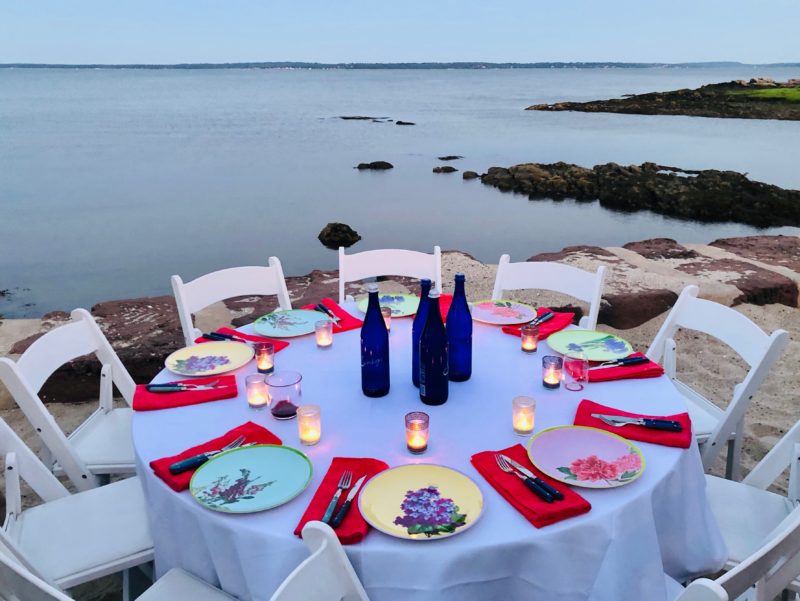
During the summer, my family and I love entertaining outside as much as possible. For these backyard gatherings, I used to rely on single-use disposable tableware that wouldn’t shatter or break. It was convenient, but such an unnecessary waste!
Since then, I’ve discovered shatterproof tableware that’s wonderfully reusable and still easy to use. These products, typically made out of melamine or acrylic, come in a wide variety of shapes, sizes, and styles to suit every need. Most are conveniently dishwasher safe.
Although it’s not the easiest option, cloth napkins are the greener – and prettier – choice. Consider using cloth napkins for those smaller gatherings and save the paper products when you need them for the big crowds.
If you must use disposable items, buy biodegradable paper products. Or, if you have access to a commercial compost facility, purchase certified compostable products that will break down into compost.
Green Your Party Planning
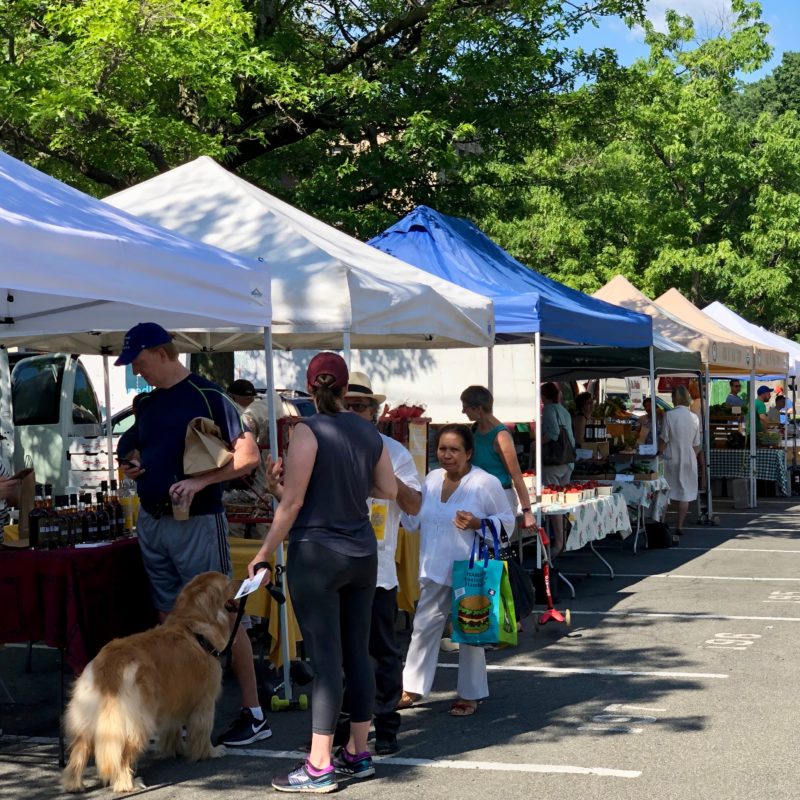
Reduce Car Trips
Bring Your Reusables
Shop Local
A farmer’s market is a perfect place to shop for local, seasonal produce and other foods. It’ll help reduce the carbon footprint of that food you’ve bought. Check if your town hosts a farmer’s market or search an online directory, such as Local Harvest, for locations near you.
Shop in Bulk
One simple way to reduce waste is to shop in bulk. Avoid purchasing products that are overly packaged, particularly with plastic, but don’t forget your reusable produce bags and containers.
Green Your Grill
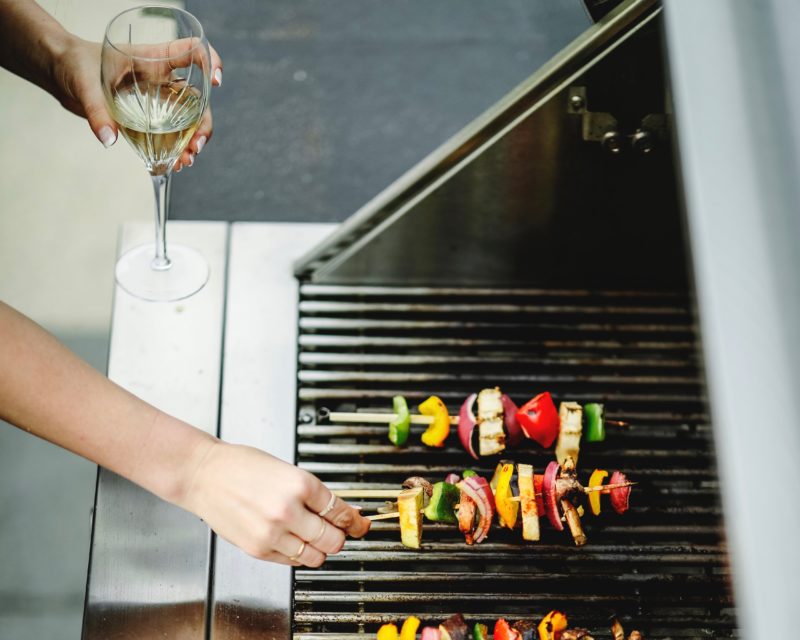
In my opinion, grilling outdoors is an integral part of summer entertaining, but all that smoke from charcoal grills can add to your carbon footprint. A recent study reveals that the average charcoal grilling session “emits as much carbon dioxide as driving a car for roughly 26 miles.”
How can you reduce emissions while still enjoying grilled food? Try these tips:
- Clean the grill before and after every session to reduce smoking.
- Avoid using charcoal lighter fluids in favor of a chimney starter. The Weber 742 Rapid Fire Chimney Starter gets high marks.
- Use natural charcoal, which is typically made from renewable sources and doesn’t include chemical additives. Your food will taste better as well. We use and like Royal Oak Natural Hardwood Lump Charcoal. It’s 100% natural and is made from renewable oak, hickory, maple, and walnut.
- Reduce your grilling time. One trick to avoid burning your meat, particularly chicken, is to sear the outside to get that grilled flavor, and then finish off the cooking in the oven.
- Consider investing in a gas grill, which emits less smoke and heats more efficiently.
Green Your Food Choices
Serve Seasonal, Unprocessed Food
Think about those times you’ve enjoyed a delicious summer tomato, fresh from the farmer’s market. Now compare that experience with biting into a mushy, mealy tomato in the middle of winter. Not only does that mealy tomato taste bad, but it also isn’t as nutritious as the summer variety. It’s also covered with synthetic pesticides and preservatives.
So take advantage of the summer season to serve fresh, unprocessed food to your guests. Meals will be a snap to prepare using delicious, fresh ingredients, since you won’t have to rely on complicated sauces and dressings to mask bland fruits and vegetables.
For a guide of what to buy when, check out the USDA’s Seasonal Produce Guide that lists dozens of fruits and vegetables by season. While you’re at it, preserve, can, or freeze seasonal produce to enjoy all year long.
Serve Less Meat
When you’re putting together your menu, opt for plant-based recipes. Eating less red meat is healthier for you, your guests, and the environment. In fact, the greenhouse gas emissions of animal vs plant protein diets vary by as much “as the difference between owning an average sedan versus a sport-utility vehicle.” So, instead of serving only BBQ meat, add some grilled veggies, or even consider an exclusively vegetarian meal.
A Green Cleanup
Clean up Naturally
A lot of summer entertaining means a lot of cleaning up. Before you reach for the chemical cleaning products, try some natural alternatives instead. Green That Life’s post on green cleaning products will help you choose which ones are healthy for you and the planet.
Recycle Right
If it’s a large, casual gathering, set out clearly marked bins for your guests so it’s easy for them to help with recycling. And if you have a backyard compost system or participate in a community compost program, make sure all unwanted food is properly disposed of by keeping a large pail handy to toss in food scraps.
Eat Your Leftovers
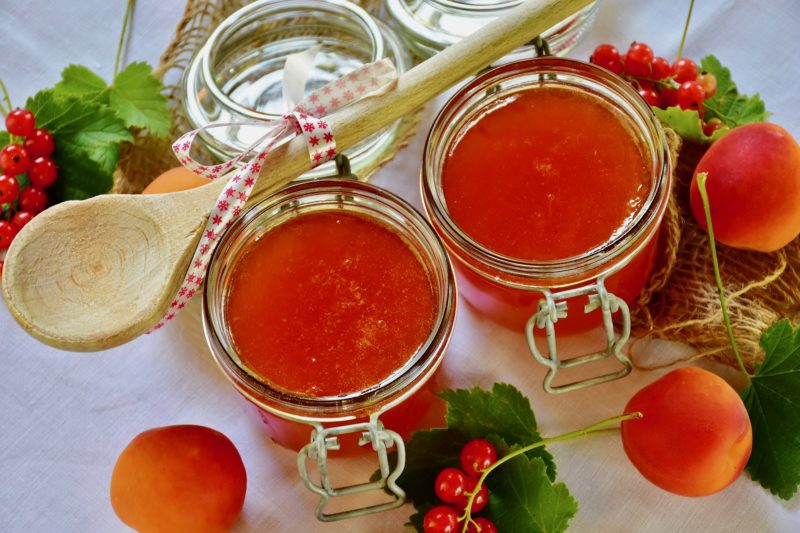
If you’re like me, I always make too much food for my guests. (There’s nothing worse than having too little food!) Instead of throwing everything out, store or freeze your leftovers for another meal.
Plan Ahead to Store Leftovers
Before guests arrive, I find it helpful to spend a few minutes setting up food storage containers for leftovers, particularly appetizers.
I’ve learned the hard way about food waste when, at the end of the night, I discover spoiled dips and appetizer meats that have sat out for hours. What a waste!
To avoid having to toss out perfectly good food, set out a few containers of different sizes on the counter. That way, when you’re ready for the main meal, you can easily store or freeze any leftover appetizers without scrambling around looking for containers or forgetting to store food altogether. Do the same for your main meal. It’ll speed your cleanup.

